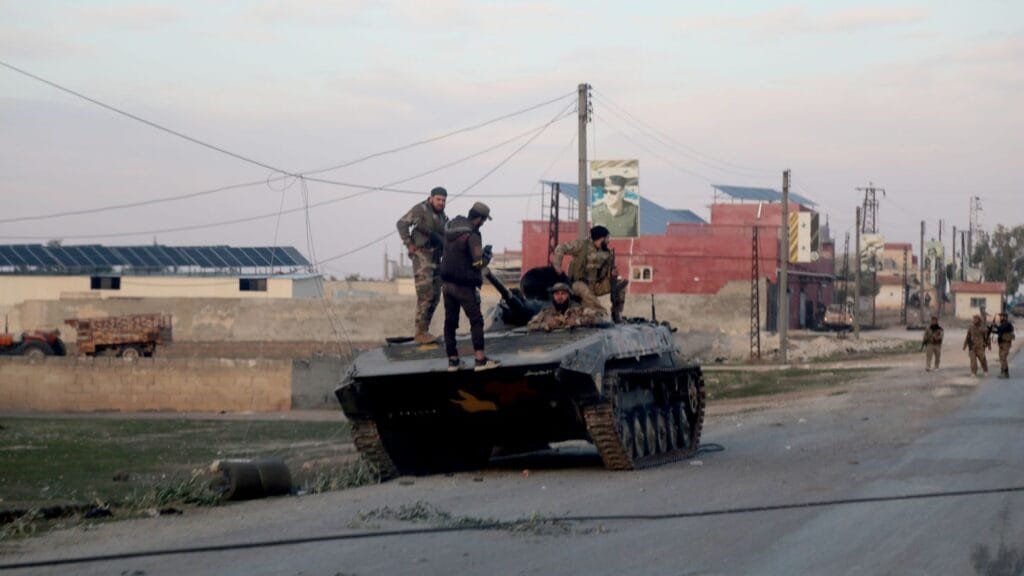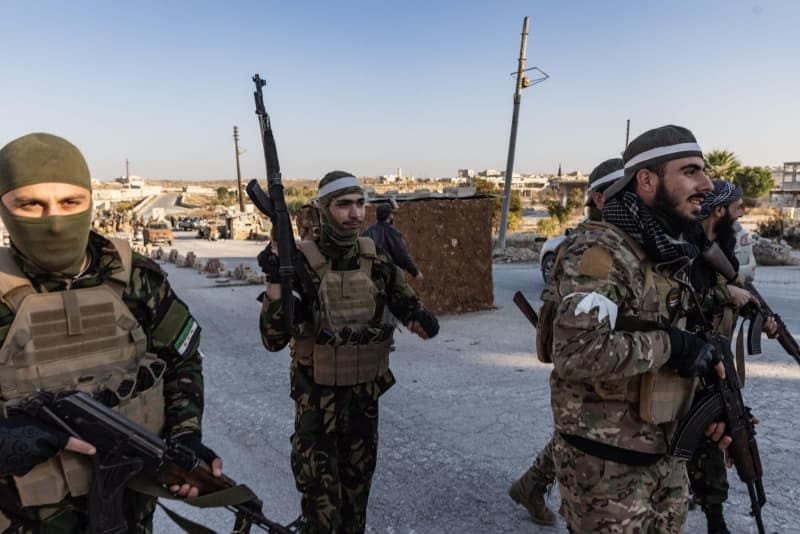Key Highlights
Syrian Rebels Seize Hama: A Major Blow to Assad’s Army in Syria’s Civil War
The Syrian civil war, now over a decade old, has witnessed yet another dramatic development as Syrian rebels captured the strategic city of Hama. This significant loss for President Bashar al-Assad’s forces marks a turning point in the conflict, with far-reaching implications for Syria’s political and military landscape. The seizure of Hama underscores the fragility of Assad’s hold over contested regions and raises questions about the future of the war-torn nation.
Hama: A Strategic City in the Syrian Conflict
Located in central Syria, Hama has been a critical stronghold for the Syrian government due to its geographical and strategic importance. The city serves as a vital link between Damascus in the south and Aleppo in the north, making it a linchpin in controlling supply routes and maintaining military coordination.

The capture of Hama by Syrian rebels disrupts this balance, creating logistical and operational challenges for Assad’s forces. For the rebels, this victory is not just a territorial gain but also a symbolic win, signaling their resilience and capacity to challenge government forces despite years of setbacks.
The Offensive: How Hama Fell to Syrian Rebels
The fall of Hama resulted from a well-coordinated offensive launched by Syrian rebel factions, including groups backed by regional powers. The rebels employed a combination of guerrilla tactics and heavy artillery, targeting key military installations and supply lines around the city. Reports suggest that Assad’s forces were caught off guard, leading to heavy casualties and a rapid retreat.
Eyewitness accounts describe intense fighting in the city’s outskirts, with residents fleeing the violence in large numbers. Rebel leaders have declared Hama a “liberated zone,” pledging to use the city as a base for future operations against government-controlled territories.
Implications for Assad’s Regime
The loss of Hama is a significant setback for Assad’s regime, which has relied on key urban centers to maintain its grip on power. This defeat raises several challenges for the government:
- Loss of Strategic Positioning: The fall of Hama compromises supply routes and weakens Assad’s control over central Syria, making it harder to coordinate military efforts across the country.
- Erosion of Morale: The victory by Syrian rebels has dealt a blow to the morale of Assad’s forces, which have been stretched thin by years of fighting.
- Increased Pressure from Rebels: Hama’s capture provides rebels with a foothold to launch further attacks on neighboring regions, potentially threatening other government strongholds.
- Geopolitical Consequences: The loss could shift the balance of power in Syria, emboldening opposition forces and complicating Assad’s efforts to gain international legitimacy.
The Humanitarian Crisis: Civilians Caught in the Crossfire
The fighting in Hama has exacerbated Syria’s already dire humanitarian crisis. Thousands of civilians have been displaced, seeking refuge in nearby towns and border regions. Humanitarian organizations have reported an urgent need for food, water, and medical supplies as the conflict has disrupted essential services in the city.

The United Nations has called for an immediate ceasefire to allow aid workers to access affected areas and provide relief to displaced populations. However, with the situation on the ground remaining volatile, delivering assistance remains a significant challenge.
Reactions from the International Community
The capture of Hama has drawn international attention, with global powers expressing concerns about the escalating violence in Syria.
- The United States: U.S. officials have called for renewed diplomatic efforts to resolve the conflict, emphasizing the need for a political solution to end the war.
- Russia: A key ally of Assad’s regime, Russia has condemned the rebel offensive and reiterated its support for Syria’s government. Russian forces, which have been instrumental in supporting Assad, are expected to bolster their presence in the region.
- Regional Players: Countries like Turkey, which has supported certain rebel factions, view the fall of Hama as a strategic victory against Assad. Meanwhile, Iran, another ally of Assad, has vowed to provide additional support to counter the rebels’ advances.
What’s Next for Syrian Rebels?
The capture of Hama marks a resurgence for Syrian rebels, many of whom have faced significant losses in recent years. The victory provides a morale boost and a platform for further operations, but challenges remain:
- Sustaining Control: Holding onto Hama will require resources and coordination, particularly as Assad’s forces regroup and attempt to reclaim the city.
- Rebel Unity: The various factions within the rebel movement must maintain unity to capitalize on this victory and avoid infighting.
- International Support: Securing continued support from regional and global allies will be crucial for sustaining momentum in the conflict.

The Road Ahead: A Fragile Future for Syria
The fall of Hama highlights the complexity of Syria’s civil war, where shifting alliances and geopolitical interests make peace elusive. For Assad’s regime, the loss underscores the challenges of maintaining control over a fractured nation. For Syrian rebels, the victory is a reminder of their resilience but also a test of their ability to sustain gains in a protracted conflict.
A Turning Point in Syria’s Civil War?
The capture of Hama by Syrian rebels is a significant development with far-reaching implications for Syria’s future. As the conflict enters another uncertain phase, the need for a sustainable political solution becomes ever more pressing. For now, the battle for Syria continues, with Hama serving as the latest flashpoint in a war that has reshaped the region and the lives of millions.
For Latest News Updates Click Here
